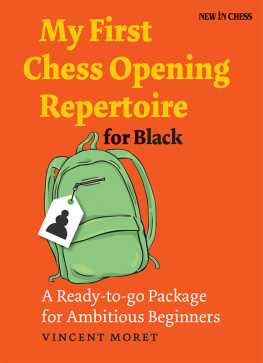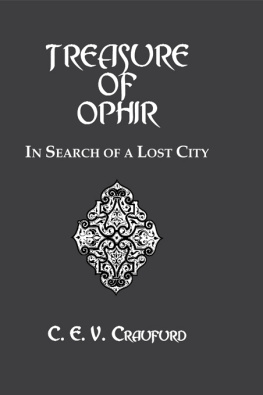
From Tribe To Empire
This seminal work written in a close collaboration between an eminent sociologist and an eminent historian show that sociology is and should be the ally of the historian and vice versa. Taking Egypt and the Ancient East on as the subject matter, this analysis of early society seeks to show the beginnings of social order and its first steps onto the ladder that leads to classical civilization of the ancient and modern world. The book covers in a systematic way, both theoretically and historically, totemic organization, individualized and communistic power, the progress from clans and kingdoms, especially in ancient Egypt and the Semitic world, the empires of Iran and the Barbarian invasions. A stimulating and authoritive study in history and sociology.
A. Moret was director of the Muse Guimet and G. Davy was professor at the University of Dijon.
ROUTLEDGE HISTORY OF CIVILIZATION SERIES
A Thousand Years of the Tartars E. H. Parker
From Tribe to Empire G. Davy and A. Moret
A Geographical Introduction to History L. Febvre
Language: A Linguistic Introduction to History J. Vendryes
Race and History E. Pittard
The Migration of Symbols D. A. Mackenzie
The gean Civilization G. Glotz
The Rise of the Celts H. Hubert
The Greatness and Decline of the Celts H. Hubert
The History of Music Cecil Gray
History of Witchcraft and Demonology Montague Summers
Life and Work in Medieval Europe P. Boissonnade
The Dawn of European Civilization V. Gordon Childe
The Geography of Witchcraft Montague Summers
Mesopotamia L. Delaporte
The Life of the Buddha as Legend and History E. Thomas
The Nile and Egyptian Civilization A. Moret
The Roman World V. Chapot
Travel and Travellers of the Middle Ages A. P. Newton
From Tribe To Empire
Social Organizations among Primitives and in the Ancient East
A. MORET and G. DAVY
First published in 2003 by
Kegan Paul International
This edition first published in 2011 by
Routledge
2 Park Square, Milton Park, Abingdon, Oxon, OX14 4RN
Simultaneously published in the USA and Canada
by Routledge
711 Third Avenue, New York, NY 10017
Routledge is an imprint of the Taylor & Francis Group, an informa business
Kegan Paul, 2003
All rights reserved. No part of this book may be reprinted or reproduced or utilised in any form or by any electronic, mechanical, or other means, now known or hereafter invented, including photocopying and recording, or in any information storage or retrieval system, without permission in writing from the publishers.
British Library Cataloguing in Publication Data
A catalogue record for this book is available from the British Library
ISBN 10: 0-7103-0850-7 (hbk)
ISBN 13: 978-0-7103-0850-4 (hbk)
Publishers Note
The publisher has gone to great lengths to ensure the quality of this reprint but points out that some imperfections in the original copies may be apparent. The publisher has made every effort to contact original copyright holders and would welcome correspondence from those they have been unable to trace.
CONTENTS
LIST OF ILLUSTRATIONS
FIG.
LIST OF MAPS AND PLANS
FOREWORD
THE THREE PHASES OF SOCIAL ORGANIZATION
I
ON several occasions in the first volumes dealing with the Evolution of Humanity we have met and touched on the problem of the social factor; here we face this problem deliberately and, as it were, come to grips with it. It is the social as such that this book essentially aims at introducing into historical explanation.
That the study of the social element and of the function of this element belongs to history, that sociology is a historical discipline which, having taken its material from history, brings to history its resultsthat is our profound conviction. We are not unaware that to a certain type of mind it seems idle to ask whether it is history that embraces sociology or sociology that uses and transcends history; we believe that such are mistaken. The interpretation of the past is different according as sociology be viewed as a science which holds the key to history or as a science which explains it in a measureeven in a large measurebut not in an exclusive manner.
Defined rigorously, delimited carefully, sociology in its essence appears as a study of those institutions which correspond in social life to the functions in organic life; as a study of the structure of societies; as a study, finally, of the relations which exist between functions and structure and also between the several functions. It is abstract and comparative, since it isolates elements derived from history at different points in space and time in order to compare them. And after elaborating these elements it gains for the use of history a system of necessities or laws. It separates out and studies one important factor in human developmentsocial organization; it does not deny the existence of other factors. It furnishes a capital contribution to the historical synthesis; it is not the historical synthesis.
Among the sociologists who have formed a more ambitious conception of their discipline and have revived certain of the errors of the philosophy of history a distinction must be drawn. There are those who have assigned it too vague a character and have amalgamated heterogeneous elements without determining the social with sufficient precision. On the other hand, there are those who, having accurately defined the nature of the element, have only been wrong in exaggerating its importance and wishing to reduce everything to it.
The bases of positive sociology have been laid in the French school of which Emile Durkheim was the founder and for twenty-five years the undisputed leader.1 We have often expressed regret that this mighty spirit, who exerted an almost dominating effect upon his disciples, did not exercise outside his own group as much influence as he deserved and did not succeed in establishing sociology finally as a science. We believe that what has prevented his complete success is the philosophic tendency, as a result of whichdespite his desire for a positive sciencehe exaggerates, or is inclined to exaggerate, the importance of the social. But perhaps that exaggeration is connected with a too a priori conception of positive science. For Durkheim and his school it is anti-scientific to admit action by the individual; the objective explanation by means of social necessity must be pressed as far as possible; and if we reach an individual remainder we should yet preserve the hope and even the desire of a complete explanation through the social. Now, the fanaticism of science, and only science, is dangerous; science is bound, not to obey concepts, but to adapt itself to the nature of things.
We have remarked that in his works Durkheim often made reservations upon his theses, and with a doubtless made concessions to reality, concessions which he immediately withdrew by a but.1 We recognized that the sociologist has the right, and that it may be in the interests of science, to press as far as possible the explanation through the social; but we demanded that writers should formally confess cases of intractability to such an explanation and resign themselves to the complexity of the real. In his passion for truth, Durkheim, although his inner conviction might not have changed, and though his assertions sometimes continued to overstep the bounds of his evidence, ended what was destined to be his last work with phrases of caution. It is proper to inquire whether that which in the individual transcends the individual, do not come to him from this supra-individual reality given in experience which is society. In truth none can now say how far these explanations may extend and whether they are of a nature to abolish all problems. But it is equally impossible to lay down in advance any limit which they must not overstep. What is necessary is to test the hypothesis, to submit it as methodically as possible to the control of the facts. That is what we have tried to do.










